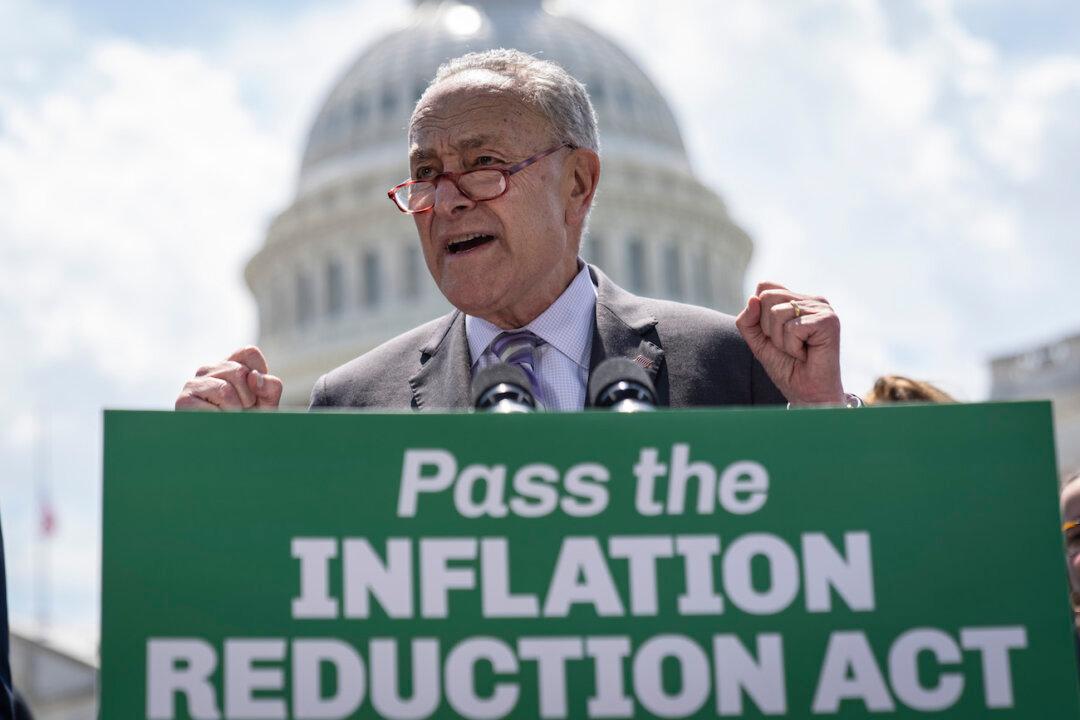Senate Democrats late on Aug. 6 advanced a mammoth spending bill on climate and energy, health care, and taxes, after overcoming unanimous Republican opposition in the evenly divided chamber.
The procedural vote to advance the Democratic bill—which authorizes over $400 billion in new spending—was 51–50 after Vice President Kamala Harris arrived at the Capitol to cast a vote, breaking the deadlock in the Senate over the measure that Democrats say would reform the tax code, lower the cost of prescription drugs, invest in energy and climate change programs, all while lowering the federal deficit.




